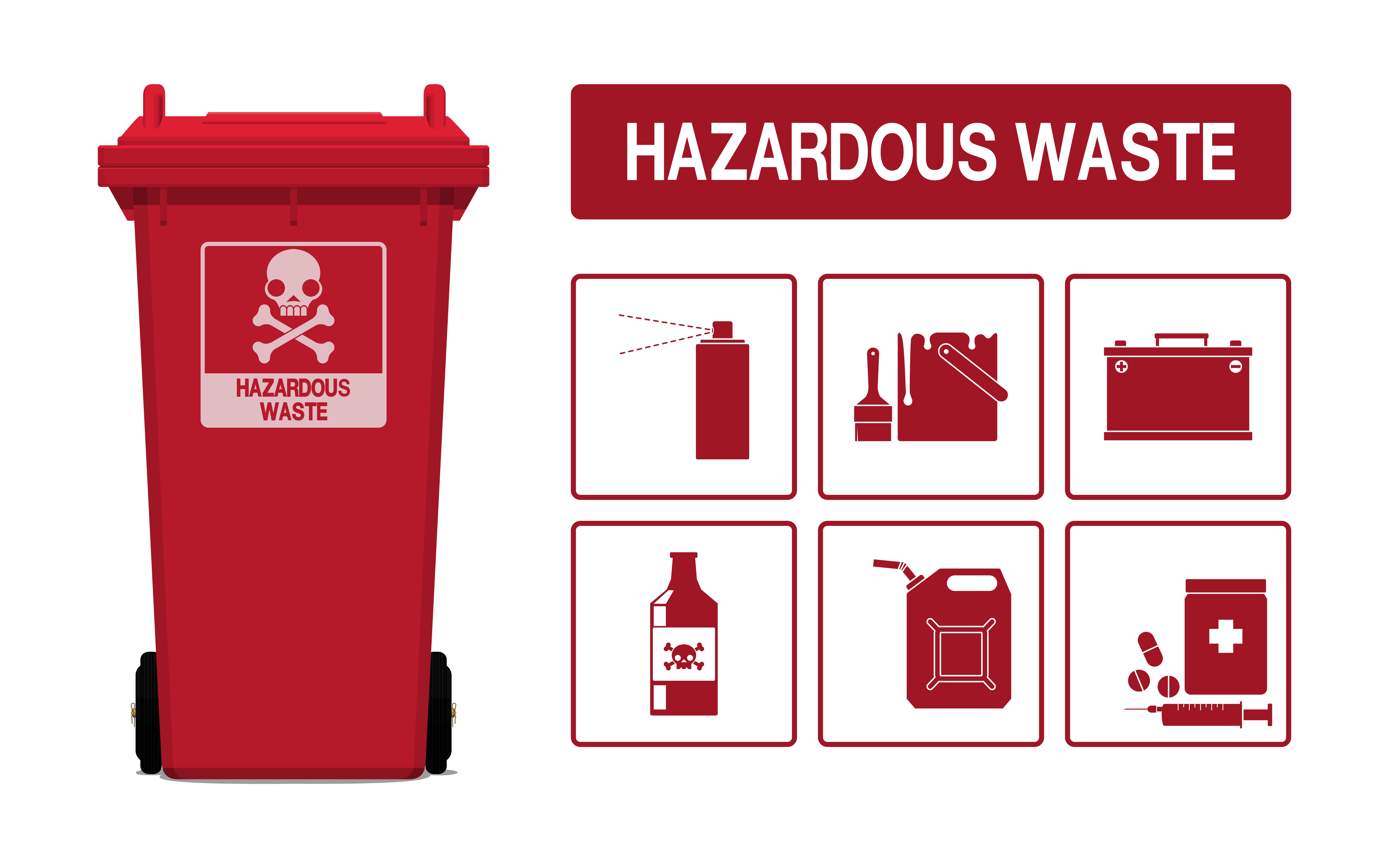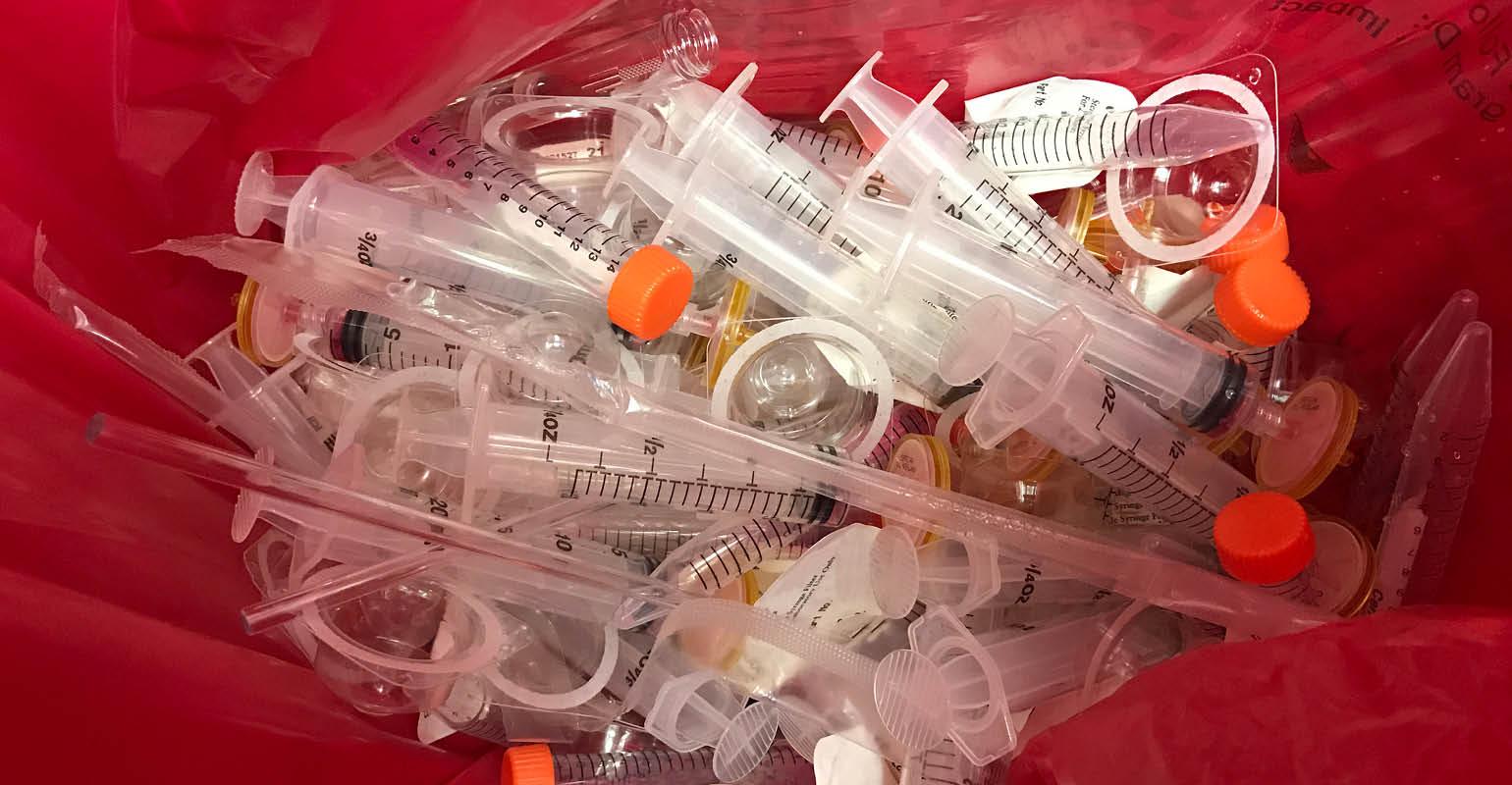Shielding Health And Wellness: Expert Medical Waste Removal Services for a Tidy Atmosphere
Shielding Health And Wellness: Expert Medical Waste Removal Services for a Tidy Atmosphere
Blog Article
Keep Ahead of Laws: Specialist Recommendations on Medical Garbage Disposal
In a world where the healthcare industry is regularly advancing, it is crucial for medical centers to remain ahead of laws when it concerns the appropriate disposal of clinical waste. With rigorous guidelines and frequent regulative modifications, it can be challenging to browse the complexities of this procedure. Nevertheless, with experienced guidance, centers can make sure conformity and mitigate dangers associated with inappropriate garbage disposal. From understanding the various groups of medical waste to applying the appropriate collection and segregation techniques, this conversation will certainly provide valuable insights and actionable ideas to aid facilities stay in advance of laws in the ever-changing landscape of medical waste disposal.
Comprehending Clinical Waste Categories
Comprehending clinical waste categories is necessary for proper disposal and monitoring in medical care centers. Clinical waste describes any kind of waste generated by healthcare tasks that might posture a risk to public health or the environment. It is important to categorize clinical waste precisely to guarantee its safe handling, transport, treatment, and disposal.
There are a number of groups of clinical waste that medical care facilities require to be familiar with. The most common groups consist of transmittable waste, pathological waste, sharps waste, pharmaceutical waste, and chemical waste. Each category has details guidelines and guidelines for its proper administration and disposal.
Transmittable waste consists of products contaminated with blood or various other physical liquids, such as gloves, dress, and laboratory cultures. Pathological waste refers to human tissues, organs, or body parts that call for unique handling and disposal. Sharps waste consists of used needles, syringes, and other sharp objects that can trigger injury and transfer infections. Pharmaceutical waste comprises expired, unused, or contaminated medicines that need mindful handling and disposal. Lastly, chemical waste includes solvents, disinfectants, and various other chemical materials made use of in medical care centers.
Remaining Up-To-Date With Regulatory Modifications
Remaining existing with regulative modifications is critical for medical care centers to guarantee conformity and proper management of medical waste disposal. medical waste removal service. With regulations regularly progressing, it is important for health care centers to remain current to prevent fines, penalties, and potential injury to the setting and public health
To remain ahead of regulative modifications, healthcare centers must establish a system for surveillance and monitoring updates. This can be done by registering for regulative newsletters, participating in workshops and meetings, and actively taking part in industry organizations. In addition, facilities must assign an employee or team in charge of staying educated and distributing info to relevant stakeholders.
Normal interaction with regulatory firms is also vital. Medical care facilities should develop connections with regional, state, and federal firms to guarantee they understand any adjustments in regulations that might affect their waste monitoring techniques. This can be done via normal meetings, involvement in public comment durations, and aggressive engagement with regulatory companies.
Furthermore, healthcare facilities ought to take into consideration partnering with waste administration companies that specialize in medical waste disposal (medical waste disposal services with WasteX). These business are frequently skilled in the most recent guidelines and can supply support and support to guarantee compliance
Executing Proper Collection and Partition Approaches
To efficiently take care of clinical waste disposal, healthcare centers need to develop appropriate collection and segregation approaches according to regulatory guidelines. Executing these approaches guarantees the risk-free handling and disposal of possibly dangerous products, protects the setting, and decreases the danger of infections and injuries to health care employees and the general public.
Proper collection and partition methods involve using designated containers and identifying systems. Healthcare facilities need to offer clearly classified containers for different kinds of medical waste, such as sharps, contagious waste, pharmaceutical waste, and non-hazardous waste. These containers ought to be color-coded and plainly marked to stay clear of confusion and advertise easy identification.
Furthermore, healthcare centers ought to educate their staff on the right treatments for accumulating and segregating medical waste. This includes informing them on the various kinds of waste, the ideal containers to use, and the importance of following regulations and standards. Regular training sessions and correspondence course ought to be carried out to make sure that personnel stay up-to-date on finest techniques.
Furthermore, health care centers should develop a system for normal collection and disposal of clinical waste. This might entail partnering with qualified waste monitoring business that concentrate on clinical garbage disposal. These business will certainly ensure that the gathered waste is transported and disposed of in conformity with regulative needs.
Selecting the Right Disposal Approaches

Incineration is just one of one of the most common and reliable approaches for dealing with certain sorts of clinical waste, such as pathological waste and sharps. It includes the controlled combustion of waste at heats, minimizing it to ash. Nevertheless, incineration can release damaging toxins right into the air and add to air contamination.

Other disposal approaches consist of chemical treatment, microwave therapy, and landfilling. Chemical therapy involves the usage of chemicals to neutralize the waste and disinfect. Microwave therapy uses microwave energy to heat and decontaminate the waste. Landfilling includes hiding the waste in a marked garbage dump area (medical waste disposal services with WasteX). Nonetheless, landfilling should be the last hotel due to the potential risk of contamination to soil and groundwater.
Making Sure Conformity Via Documentation and Training
After thoroughly considering the suitable disposal techniques for medical waste, health care centers must guarantee compliance with regulations my link and reduce ecological influence by implementing reliable documents and training procedures. This step is important in preserving a sustainable and secure atmosphere for both health care workers and the public.

Training is equally crucial in making sure compliance with guidelines. Healthcare employees who manage medical waste should get appropriate training on waste segregation, taking care of, and disposal procedures. This training needs to cover subjects such as the appropriate use personal safety devices, identification of various sorts of waste, and the appropriate disposal methods for each and every waste category. By offering comprehensive training, medical care centers can encourage their personnel to make educated decisions and minimize the risk of improper waste disposal.
Conclusion
To conclude, staying in advance of regulations in medical waste disposal is vital for health care facilities. medical waste removal service. Understanding the various categories of clinical waste, staying updated with regulatory modifications, implementing proper collection and segregation techniques, choosing the ideal disposal techniques, and guaranteeing conformity via documents and training are all essential steps. By following these standards, healthcare organizations can successfully manage and get rid of of medical waste in a safe and liable way
From recognizing the various categories of medical waste to executing the best collection and segregation approaches, this conversation will certainly give workable suggestions and useful insights to assist centers stay in advance of policies in the ever-changing landscape of medical waste disposal. - medical waste disposal services with WasteX
The most usual categories include contagious waste, pathological waste, sharps waste, pharmaceutical waste, and chemical waste. Medical care centers need to supply clearly labeled containers for various kinds of medical waste, such as sharps, infectious waste, pharmaceutical waste, and non-hazardous waste. Health care facilities should develop a comprehensive system to record and track all aspects of clinical waste disposal, consisting of types of waste generated, amounts, and disposal techniques made use of. Healthcare employees who take care of medical waste needs to receive proper training on waste partition, dealing try this with, and disposal treatments.
Report this page